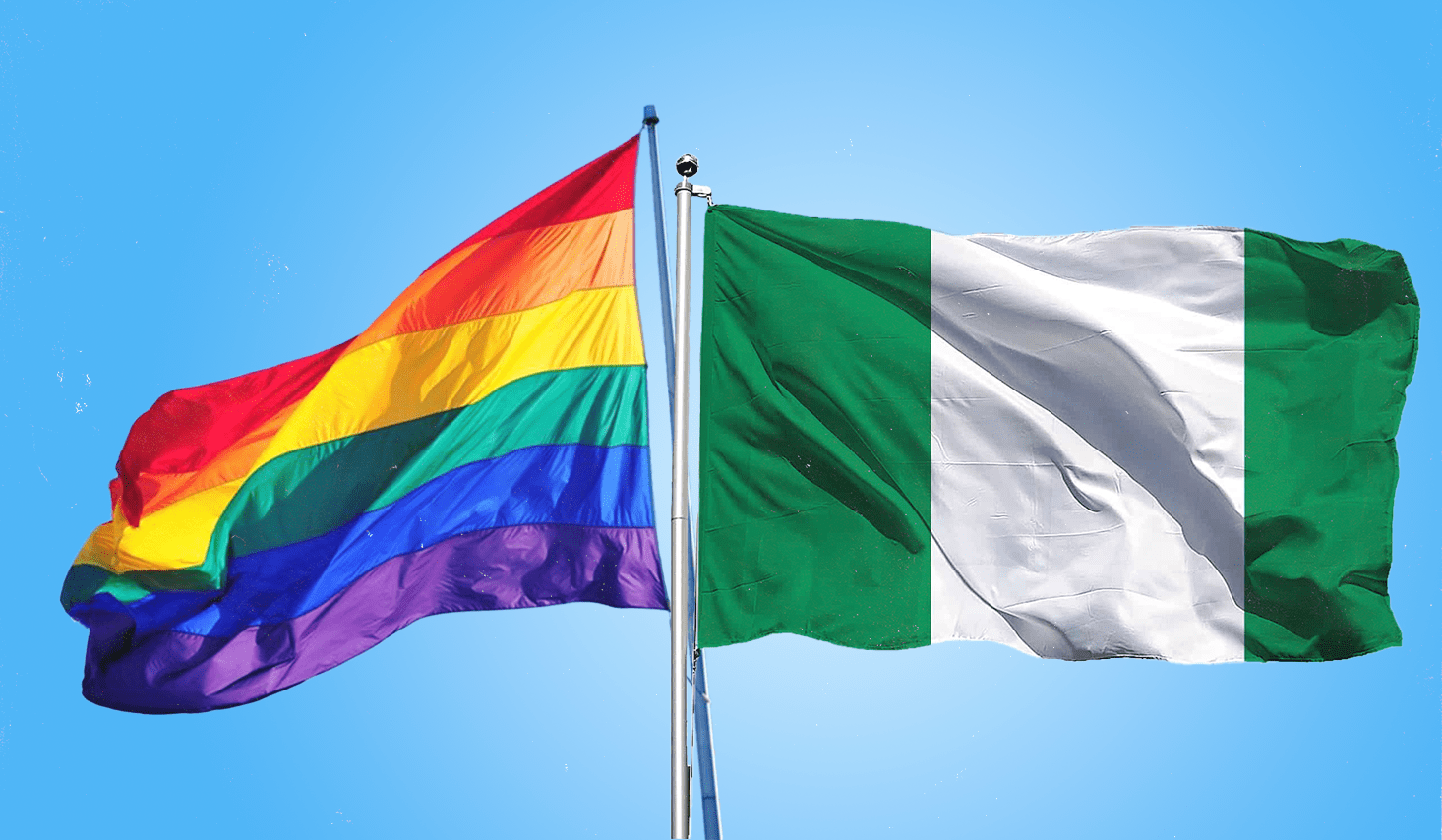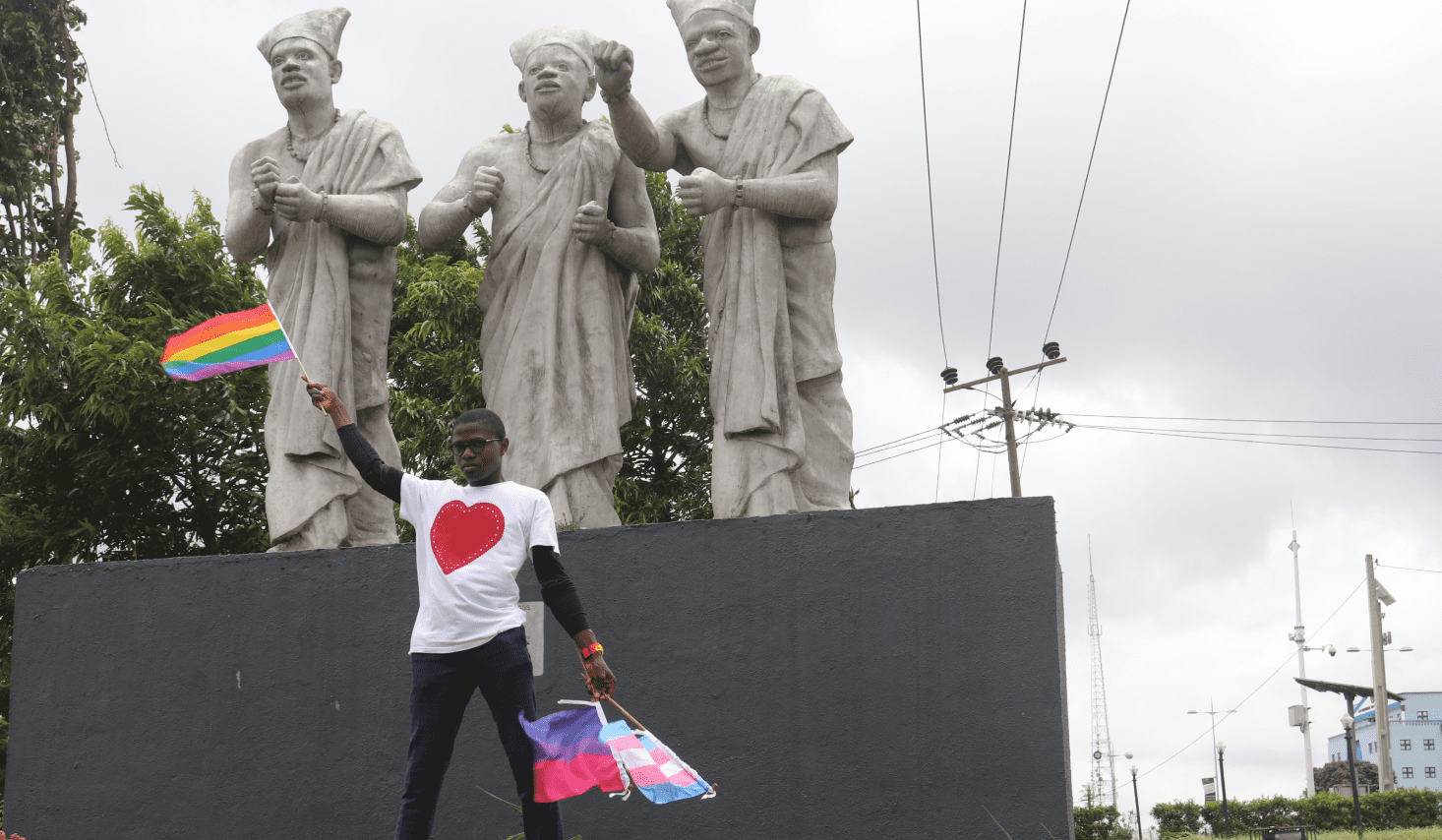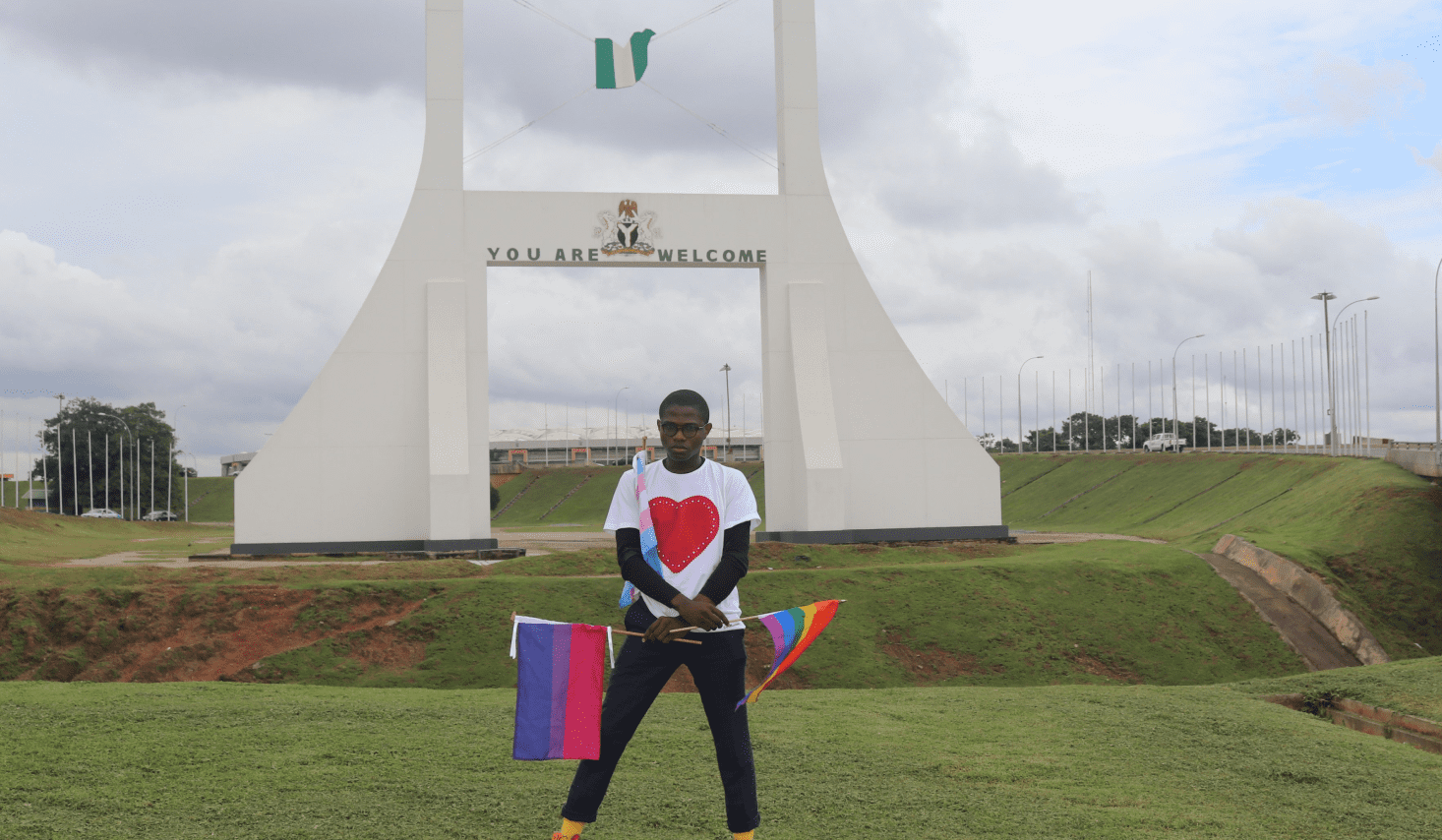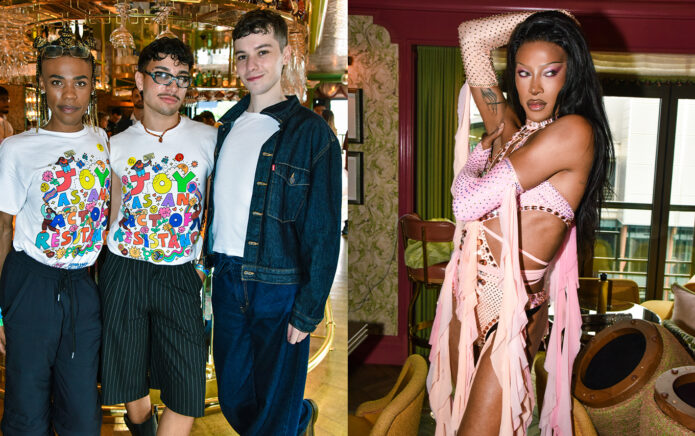
From historic figures to cultural and religious values, the Nigerian landscape is not often celebrated for its proximity to the LGBTQ+ community. For many, Nigeria’s history and culture of queerness remain untold. While many maintain an image of intolerance and oppression, the African country has, gradually, spearheaded progress in a new direction. Notably, in 2019, Nigeria hosted its first-ever known pride protest.
In honour of LGBTQ+ History Month, GAY TIMES explores a handful of locations that spotlight the message of pride, resistance and progress.
The National Theatre
The National Theatre was one of fifteen locations highlighted during Nigeria’s first-ever all-inclusive month-long LGBTQ+ pride month which pays homage to the fearless spirit of Queen Amina of Zauzau (modern-day “Zaria” in Kaduna State, Nigeria), who is arguably an LGBT+ icon of her time.
Queen Amina, born in the sixteenth century, was a fierce female warrior who is still praised today for her leadership. The Oxford Encyclopaedia of Women in World History describes her as ‘a woman as capable as a man that was able to lead men to war’. She was the only woman ruler in nine hundred years of Zauzau history, subverting traditional gender roles.
Out the front of the National Theatre in Iganmu, Lagos, is the golden statue of Queen Amina and her horse, the Iconic “Naval Cap”. It stands as a reminder to blur the lines between tradition and defiance.
The Fela Headless Statue
Commonly known as the Liberation statue, which represents a symbol of hope in Nigeria, this monument pays homage to Fela Anikulapo Kuti. Fela’s spirit was key to the success of the first LGBTQ+ pride protests which continue to inspire LGBTQ+ activists today, drawing strength from his words about shared struggle and oppression.
The Tafawa Balewa Square
Named after Nigeria’s first Prime Minister, the Tafawa Belawa Square was host to Nigeria’s Independence celebration in October 1960. This is a significant date and place in Nigeria’s fight for freedom, but it also stands as a reminder that the LGBTQ+ community, alongside other marginalised groups, have not enjoyed the same independence or freedoms.
Four giant white horses and seven red eagles stand proudly in the square, representing strength and dignity. However, this display, for LGBTQ+ people is a stark reminder that independence wasn’t for all. For many, Independence should have paved the way for the acceptance of LGBTQ+ people, however, progress is still to be made as the colonial legacy of intolerance continues across Nigeria.

The Welcome to Lagos: The Agba Meta sculpture
Lagos continues to be the hub of cultural acceptance and social movements in Nigeria. In 2022, the “EndSARS” protests spotlighted the brutality the LGBTQ+ often face. However, to challenge this, Nigerian queer youth activists stood proudly with LGBTQ+ flags and banners, adorned with the slogan #QueerLivesMatter, during the EndSARS protests to break the stigma surrounding the queer community. While this location does not have a historic tie to the LGBTQ+ community, its contemporary relevance as a place of protest continues.
Lekki-Ikoyi Link bridge
The Lekki-Ikoyi link bridge is the first cable-stayed bridge in West Africa and was the track for the “pride run”, which was followed by an education awareness talk about gender identities and sexual orientations, as part of 2019’s first-ever pride protest in Nigeria, the world’s largest black nation.
This bridge is famous not only in Nigeria but within the African diaspora as it represents hope for the LGBTQ+ Nigerian community. The moment hold great significance as the awareness talk went on to publicly introduce a great number of identities to the Nigerian public.

The Abuja City Gate
The Abuja City Gate is a national monument, built by the regime of General Ibrahim Badamasi Babangida to commemorate the relocation of the seat of power from Lagos to Abuja in 1991. The then government boldly inscribed ‘You Are Welcome’ below the nation’s coat of arms.
These grounds hosted what is now known as Nigeria’s first-ever bisexual pride and bi-visibility day in September of 2019 about a week before the first bi-pride in the UK. During bi-pride in Nigeria, activists proudly waved the bisexual flag and shared the meaning of the tri-colour design, paying homage to its designer Michael Page. The underlying message highlighted the need for visibility, acceptance, and respect within the LGBTQ+ community.
The Nigeria Houses of Parliament: The National Assembly Complex
The National Assembly of Nigeria (NASS) is the democratically elected body representing the people and country of Nigeria, as well as holding the Government of Nigeria to account.
This location was the closing ground for the first-ever month-long pride protests in Nigeria, from September to October 2019. The NASS is historically relevant for the passing of the SSMPA: Same-Sex Marriage Prohibition Act, which was signed into law in 2014. This Act goes further than existing legislation banning same-sex marriages, to prosecute and imprison anyone who “aids or abets” same-sex unions and to imprison people involved in LGBTQ+ rights advocacy. The Act criminalises anything associated with being LGBTQ+ in Nigeria.



